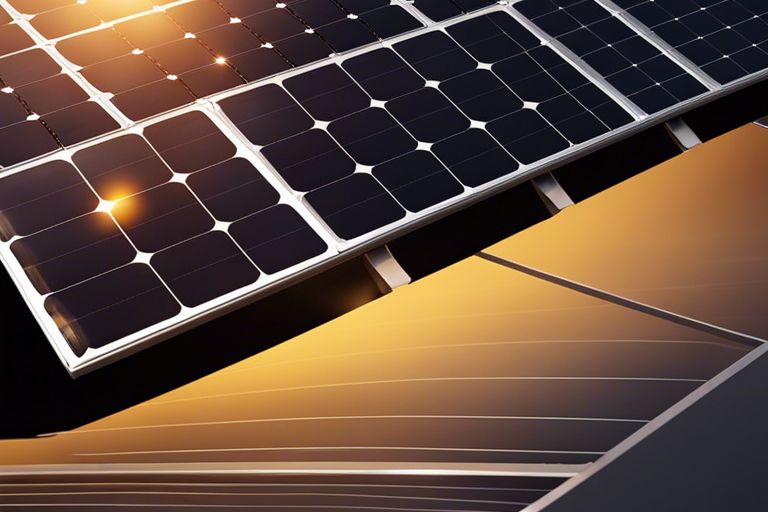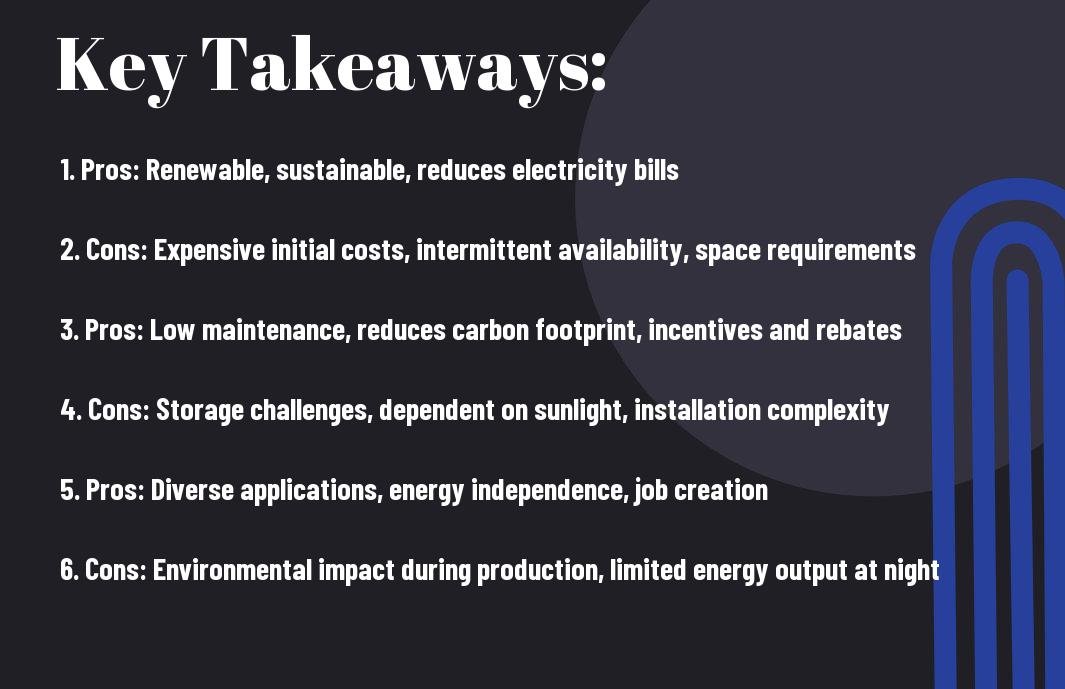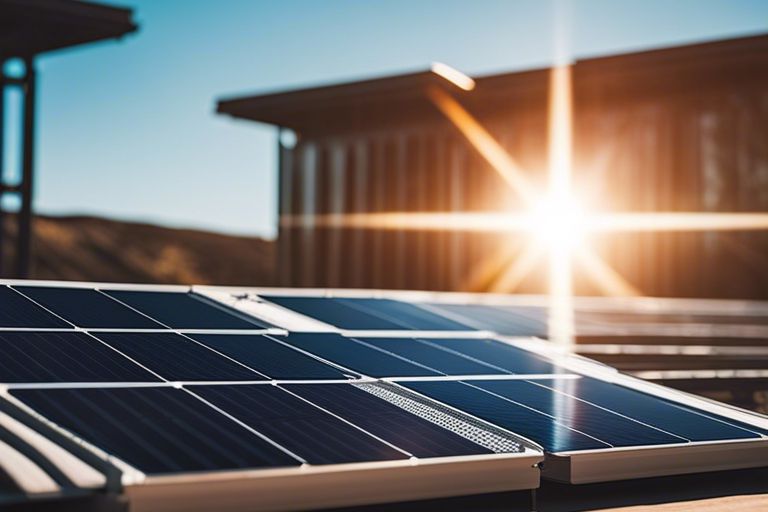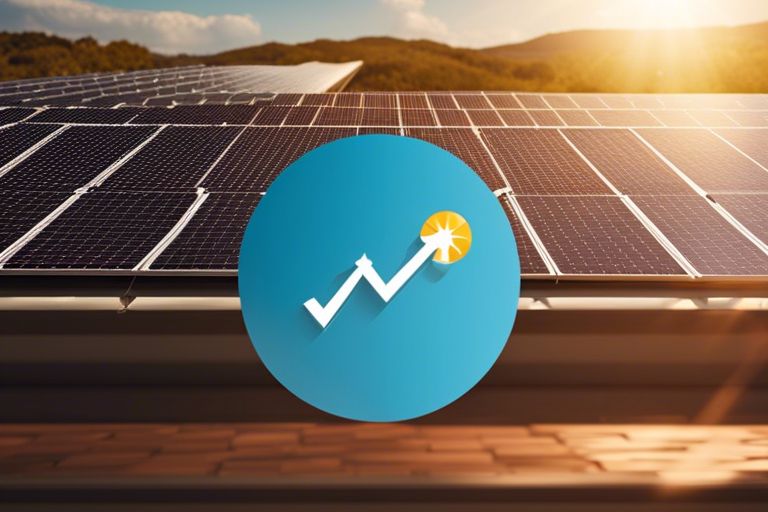With the increasing focus on renewable energy sources, you might be considering solar power for your home or business. Understanding the advantages and drawbacks of solar energy can help you make an informed decision. Let’s explore the pros and cons of harnessing the power of the sun to meet your energy needs.
Key Takeaways:
- Pros: Solar energy is a renewable source of energy, which means it is environmentally friendly and sustainable.
- Pros: Solar panels can help reduce electricity bills by generating electricity and can even earn money through feed-in tariffs.
- Pros: Solar energy systems require minimal maintenance and have a lifespan of approximately 25-30 years.
- Cons: The initial cost of installing a solar energy system can be high, although the prices have been decreasing over the years.
- Cons: Solar energy production is dependent on sunlight, so energy generation may be limited on cloudy days or during nighttime.
The Benefits of Solar Energy
Renewable and Sustainable
A significant benefit of solar energy is that it is a renewable and sustainable source of power. An endless supply of sunlight reaches the Earth every day, making solar energy a virtually infinite resource. By harnessing this abundant energy through solar panels, you are using a sustainable source of power that won’t run out anytime soon. Additionally, solar energy production does not deplete natural resources or contribute to environmental degradation, making it an environmentally friendly choice for powering your home or business.
Zero Emissions and Environmental Impact
Another advantage of solar energy is that it produces zero emissions and has minimal environmental impact. Any electricity generated from solar panels is clean and does not release harmful pollutants or greenhouse gases into the atmosphere. This not only helps combat climate change but also reduces air pollution and promotes a healthier environment for everyone. By choosing solar energy, you are actively contributing to a more sustainable and cleaner future.
Solar energy also reduces water usage in power generation processes compared to traditional energy sources. Conventional power generation methods, such as coal and natural gas, require significant amounts of water for cooling and fuel extraction. In contrast, solar panels operate without the need for water, making them an eco-friendly choice that helps conserve this valuable resource.
Energy Independence and Reduced Reliance on Fossil Fuels
One of the key benefits of solar energy is that it provides you with energy independence and reduces reliance on fossil fuels. On a practical level, installing solar panels on your property allows you to generate your electricity, reducing your dependence on external electricity providers. This independence gives you more control over your energy consumption and costs, providing a sense of security and stability in an unpredictable energy market.
Fossil fuels, such as coal, oil, and natural gas, are finite resources that contribute to air pollution, environmental degradation, and geopolitical conflicts. By transitioning to solar energy, you are helping to decrease the demand for fossil fuels, reducing their harmful impact on the environment and global stability.
Lower Energy Costs and Increased Property Value
Solar energy can lead to lower energy costs and increased property value. Solar panels can significantly reduce your monthly electricity bills by generating your power, allowing you to save money in the long run. Additionally, some regions offer incentives, such as tax credits and rebates, for installing solar panels, further lowering the initial investment cost and increasing your overall savings.
Investing in solar panels can also increase your property value. Homes with solar energy systems are highly attractive to buyers due to their energy efficiency and potential savings on electricity bills. This eco-friendly feature can set your property apart in the real estate market, potentially leading to a higher resale value and a quicker sale.
The Drawbacks of Solar Energy
High Initial Investment and Installation Costs
To start harnessing solar energy, you need to make a significant initial investment in solar panels and installation. The cost of solar panels has decreased in recent years, but it still represents a considerable expense. While there are government incentives and rebates available to offset some costs, the upfront investment can deter some individuals or businesses from adopting solar energy.
Intermittent Energy Source and Dependence on Weather
One drawback of solar energy is its intermittent nature. Solar power generation relies on sunlight, which means that energy production is limited to daylight hours and is affected by weather conditions. Cloudy days or periods of inclement weather can reduce the efficiency of solar panels, leading to decreased energy output. This unpredictability can pose challenges for meeting energy demands consistently.
It’s important to have backup energy sources or efficient energy storage solutions in place to ensure a continuous power supply when sunlight is scarce. While advancements in battery technology are improving energy storage capabilities, addressing the intermittency of solar power remains a significant hurdle.
Land Requirements and Potential Visual Impact
On top of the initial investment, solar panels require ample space for installation, which can be a constraint for urban areas or properties with limited land availability. Large solar farms or arrays also come with potential aesthetic concerns, as some people may find them visually intrusive or disruptive to the surrounding landscape. Balancing the need for clean energy with preserving natural aesthetics can be a challenge when implementing solar energy projects.
On the bright side, technological innovations like building-integrated photovoltaics and solar canopies are emerging to address land use concerns and offer more visually appealing solar energy solutions.
Energy Storage Challenges and Grid Integration
Drawbacks related to solar energy also include the challenges of storing excess energy for use during times of low sunlight or high demand. While grid integration allows you to sell surplus energy back to the grid, storage solutions like batteries are crucial for maximizing the benefits of solar power. The efficiency, cost, and scalability of energy storage technologies remain key areas of focus for improving the overall reliability and sustainability of solar energy systems.
Potential solutions such as smart grids and demand-response strategies aim to enhance the integration of solar power into existing energy infrastructure while optimizing energy distribution and consumption patterns. Overcoming energy storage challenges is important for unlocking the full potential of solar energy as a reliable and scalable power source.
The Efficiency of Solar Panels
All the advancements in technology have significantly increased the efficiency of solar panels over the years. Innovations in materials, such as the use of thinner wafers and improved cell designs, have led to higher energy conversion rates. These advancements have made solar panels more cost-effective and accessible to a wider range of consumers.
Advancements in Technology and Increased Efficiency
Solar panels are now more efficient than ever before due to advancements in technology. With the use of new materials and manufacturing processes, solar panels can convert sunlight into electricity at a higher rate. These improvements have made solar energy an increasingly viable option for both residential and commercial use.
Factors Affecting Panel Efficiency and Performance
Factors such as the angle and orientation of the solar panels, temperature, shading, and the quality of the installation can affect the efficiency and performance of solar panels. It’s crucial to consider these factors when installing solar panels to ensure optimal energy production. Additionally, regular maintenance and cleaning are imperative to keep the panels operating at their best.
- Factors such as angle, orientation, temperature, shading, and installation quality impact panel efficiency.
- Regular maintenance and cleaning are necessary for optimal performance.
- Though these factors can affect efficiency, proper consideration and care can maximize panel performance.
Comparison of Monocrystalline and Polycrystalline Panels
| Monocrystalline Panels | Polycrystalline Panels |
|---|---|
| Higher efficiency | Slightly lower efficiency |
| More expensive | Less expensive |
| Occupies less space | Requires more space for the same output |
Technology has enabled the development of two main types of solar panels: monocrystalline and polycrystalline. Monocrystalline panels typically offer higher efficiency and require less space, making them ideal for installations with limited space. On the other hand, polycrystalline panels are more cost-effective and can be a suitable option for larger installations where space is not a concern.
Polycrystalline panels are generally less efficient than monocrystalline panels, making them a more budget-friendly option. However, if space is not an issue and cost-effectiveness is a priority, polycrystalline panels can still be a viable choice for harnessing solar energy.
The Cost-Benefit Analysis of Solar Energy
Calculating the Payback Period and Return on Investment
Your investment in solar energy can be financially beneficial in the long run. By calculating the payback period and return on investment, you can determine how soon you will start saving money. Solar panels have a typical payback period of 5 to 8 years, depending on factors like system size, energy usage, and local sunlight conditions. Once the system pays for itself, you can enjoy years of free electricity and even make a profit by selling excess power back to the grid.
Government Incentives and Tax Credits
One of the significant advantages of investing in solar energy is the availability of government incentives and tax credits. These incentives can significantly reduce the upfront cost of installing a solar energy system. Some states offer rebates or tax credits that can cover up to 30% of the system cost. Additionally, the federal Investment Tax Credit (ITC) allows you to deduct a percentage of your solar investment from your federal taxes, further increasing your savings.
Government incentives and tax credits make solar energy more affordable and attractive for homeowners and businesses looking to make the switch to renewable energy. These financial incentives not only help you save money but also contribute to the growth of the solar energy industry and the transition to a more sustainable future.
Net Metering and Selling Excess Energy
With net metering, you can benefit from selling excess energy generated by your solar panels back to the grid. This means that on sunny days when your system produces more electricity than you need, the excess power is fed back into the grid, and you earn credits for it. During times when your solar panels are not producing enough energy, you can use these credits to offset your electricity consumption, effectively reducing your energy bills.
It’s a win-win situation – you not only save money on your electricity bills but also contribute to a more sustainable energy system by sharing clean energy with your community. Net metering encourages solar energy adoption and helps create a more resilient and efficient grid for everyone.
The Future of Solar Energy
Once again, if you want to probe deeper into the future of solar energy, you can find more detailed information in the article on Advantages & Disadvantages of Solar Energy. This will give you a comprehensive understanding of where solar energy is headed.
Emerging Trends and Innovations in Solar Technology
An exciting aspect of the future of solar energy is the continuous emergence of new trends and innovations in solar technology. Researchers and engineers are constantly exploring ways to make solar panels more efficient, affordable, and aesthetically pleasing. From transparent solar panels to solar roof tiles, the possibilities seem endless. These advancements not only enhance the performance of solar energy systems but also make them more accessible to a wider range of consumers.
Grid Parity and the Rise of Solar Energy Adoption
Energy experts predict that grid parity, where the cost of solar energy equals or becomes cheaper than traditional sources of energy, is on the horizon. This milestone is crucial for the widespread adoption of solar energy. As the cost of solar panels continues to decrease and efficiency increases, more and more households and businesses are opting for solar power. This shift towards renewable energy sources not only benefits the environment but also reduces electricity bills in the long run.
Grid parity is a significant turning point for solar energy adoption. Once solar power becomes cost-competitive with conventional sources of energy, the transition to a more sustainable and environmentally friendly energy mix will accelerate. This can lead to a substantial decrease in greenhouse gas emissions and a more secure energy future for generations to come.
Potential for Solar Energy to Meet Global Energy Demands
Innovations in energy storage technologies and the development of large-scale solar farms indicate the immense potential for solar energy to meet global energy demands. With the ability to harness the sun’s abundant energy, solar power can play a significant role in reducing dependence on fossil fuels and mitigating climate change. As the world increasingly shifts towards renewable energy sources, solar energy is poised to become a key player in the global energy landscape.
Another exciting prospect is the integration of solar power into smart grids, allowing for more efficient distribution and utilization of renewable energy. This integration can lead to a more resilient and sustainable energy infrastructure, capable of meeting the evolving energy needs of a growing population. As technology advances and economies of scale are realized, the future of solar energy looks brighter than ever.
Addressing Common Concerns and Misconceptions
Not sure about the real benefits of solar energy? Check out Pros And Cons of Solar Energy: It’s Usually Worth It.
Debunking Myths about Solar Energy Efficiency and Cost
Common misconceptions about solar energy often revolve around efficiency and cost. You may have heard that solar panels are not efficient enough or are too costly to install. However, advancements in technology have significantly improved the efficiency of solar panels, making them a viable and cost-effective option for homeowners. In fact, the overall cost of solar energy systems has been steadily decreasing over the years, making it a more accessible choice for many households.
Clarifying the Role of Maintenance and Repair
Repair and maintenance are often misunderstood aspects of owning a solar energy system. Some people believe that solar panels require constant maintenance and costly repairs. However, solar panels are designed to be durable and require minimal maintenance. In most cases, a simple annual inspection is all that is needed to ensure your system is operating efficiently. Additionally, many solar panel manufacturers offer warranties that cover repairs, giving you peace of mind about unexpected costs.
Exploring the Potential for Solar Energy in Urban Areas
Solar energy is not just for rural or suburban areas; it has great potential in urban settings as well. With the increasing push for sustainable practices in cities, solar energy can play a significant role in reducing carbon emissions and combating climate change. Many urban dwellings, such as apartment buildings and commercial properties, can benefit from solar installations on rooftops or as part of community solar projects. By harnessing the power of the sun in urban areas, you can contribute to a greener and more sustainable future.
To wrap up
With these considerations in mind, it is evident that solar energy offers numerous benefits, including sustainability, cost-effectiveness, and environmental friendliness. By harnessing the power of the sun, you can significantly reduce your carbon footprint and lower your energy bills in the long run. Additionally, solar energy systems require minimal maintenance and can provide energy independence to homeowners.
On the flip side, the initial cost of installing solar panels can be a deterrent for some, despite the long-term savings. Moreover, solar energy generation is dependent on sunlight, making it less reliable during cloudy days or at night. However, advancements in energy storage technology are mitigating this issue. Ultimately, weighing the pros and cons of solar energy is crucial in determining if it is the right choice for you and your home.
Q: What are the pros of solar energy?
A: One of the main pros of solar energy is that it is a renewable and sustainable source of power. It helps reduce greenhouse gas emissions and reliance on fossil fuels. Solar energy also helps lower electricity bills and can even generate income through excess power production that is sold back to the grid.
Q: What are the cons of solar energy?
A: One of the main cons of solar energy is the initial high cost of installation and equipment. While solar panels have become more affordable in recent years, the upfront investment can still be a barrier for some homeowners. Additionally, solar energy production is dependent on weather conditions and sunlight, meaning it may not be as reliable as traditional power sources.
Q: Are there any environmental benefits to using solar energy?
A: Yes, there are several environmental benefits to using solar energy. Solar power generates electricity without producing carbon dioxide or other harmful emissions that contribute to climate change. It also helps reduce air and water pollution, conserves natural resources, and promotes sustainable energy practices.







